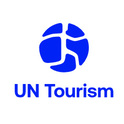UN Tourism Launches the Tourism Investment Guidelines for Jordan
UN Tourism has presented a new volume of its “Tourism Doing Business: Investment Guidelines”, this time with a focus on the investment potential of the Hashemite Kingdom of Jordan.
The report was launched at the Conference "Investing in Tourism: Opportunities and Challenges for Sustainable Financing", part of the 50th UN Tourism Regional Commission for the Middle East. Elaborated in collaboration with the Ministry of Tourism and Antiquities of Jordan, the guide provides a comprehensive overview of the socioeconomic reality of the Kingdom, its tourism performance, and investment opportunities.
In front of an audience composed of high-level officials, investors, and experts from across the region, UN Tourism highlighted the appealing value proposal of the country, which counts with globally recognized UNESCO World Heritage sites, a New Wonder of the World, Petra, and unique natural attractions with celebrated therapeutic benefits.
One of Jordan's driving forces of recovery is the active and solid partnership we have with the private sector. The government of the Hashemite Kingdom of Jordan has embarked on legislative reforms targeting investment as a whole by introducing a new investment law and also significant reforms in the tourism law. These reforms are the result of direct and continuous dialogue with the private sector. We are taking solid steps into transforming Jordan into a haven for investors, and with the help of our formidable partnership with UN Tourism and the introduction of the UN Tourism investment guide of the Hashemite Kingdom of Jordan we are on the right track. H.E. Mr. Makram Queisi, Minister of Tourism and Antiquities of the Hashemite Kingdom of Jordan
Jordan offers a one-of-a-kind tourism proposition with a rich umbrella of options that include seven subsectors such as medical and wellness tourism, film tourism, business or agritourism. This diverse offer is paired with institutional stability, strategic policymaking, and a robust recovery of post-pandemic tourism figures. Natalia Bayona, UN Tourism Executive Director, who presented the report's content at the conference
Jordan's Remarkable Post-Pandemic Growth
Jordan is a global destination that has shown its tourism resilience through its outstanding performance during 2023.
Some key insights in the "Tourism Doing Business – Investing in Jordan" report include:
- By 2023, Jordan fully recovered from the pandemic with 6.3 million international visitors (including overnight and same-day travelers), an 18.5% increase over the 2019 record.
- Between January and September 2023, trade, restaurants, and hotels have increased their weight in the economy, reaching 12.5% of GDP compared to 11.4% in 2019.
- Tourism employed 54,856 people in 2023, a slight increase from 2019 and representing 4 to 5% of Jordan's total employed population.
- Jordan's air travel sector has rebounded, maintaining connections to 43 countries through 54 airlines by 2023.
Economic Performance and Growth Potential
The Jordanian economy has experienced a steady growth rate of 2.2% and has kept inflation stable at an average rate of 2.1% over the past decade. IMF projections suggest that Jordan's GDP recorded a 2.6% increase in 2023, and it is expected to grow by 2.6% in 2024 and 3.0% in 2025.
In 2023, tourism generated USD 7.4 billion of foreign inflows, surpassing pre-pandemic levels by 28%, and confirmed its role as one of the main sources of income to the economy and motor for the country's GDP growth.
The guidelines also provide a detailed analysis of the investment outlook and greenfield investment dynamics. When it comes to Foreign Direct Investment (FDI), FDI inflows surged by 83% in 2022, reaching the mark of USD 1.1 billion, which nearly matches the country's 10-year average inflow. A trend that seems to have continued into 2023.
The country is also implementing a series of strategies to strengthen its competitiveness and investment frameworks and to support the growing innovative entrepreneurial ecosystem: the Economic Modernization Vision (2023 – 2030), the Investment Promotion Strategy (2023 – 2026), and the Jordan National Tourism Strategy (2021 – 2025). These initiatives are projected to attract additional investments of around USD 3.8 billion in the tourism sector by 2033.
Supported by sizeable investments, tourism diverse products and Jordan's natural beauty, tourism can be an engine of job creation and growth in the country. Tourism investment offers opportunities for economic diversification and market-creation when effectively managed. Basmah Al-Mayman, Regional Director for the Middle East
Related links:
- Tourism Doing Business Investing in Jordan
- UN Tourism Connects Leaders for Investment Conference Focused on Middle East Opportunities
About UN Tourism
The World Tourism Organization (UN Tourism), a United Nations specialised agency, is the leading international organisation with the decisive and central role in promoting the development of responsible, sustainable and universally accessible tourism. It serves as a global forum for tourism policy issues and a practical source of tourism know-how. Its membership includes 166 countries, 6 territories, 2 permanent observers and over 500 Affiliate Members from the private sector.
Media enquires: [email protected]
UN Tourism Communications Department
+34 91 567 8100
UN Tourism
